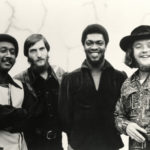The Innovators: Stax Artist Spotlights

The Mar-Keys
Though many regard Booker T. & The M.G’.s as the seminal backing ensemble tasked with providing the instrumental might that established Stax’s soul sound, the group doesn’t have the distinction as the label’s very first in-house band. Instead, that distinction belongs to a looser collective of players billed as The Mar-Keys. While the group may not be as iconic as the rhythm section that would succeed them as stalwarts in the Stax Records studio, nor as defined in their personnel, The Mar-Keys remain emblematic of the label’s early successes, emblazoning a path that opened the door to future successes for their Stax contemporaries.
The group’s core comprised of several Memphis-area high school students whose love for rhythm and blues served as an impetus for exploration, as they ventured outside of white Southern U.S. society to commune with purveyors of the Black-centric artform. Originally forming as The Royal Spades, the band of young men included guitarist Charlie Freeman, keyboardist Jerry Lee “Smoochy” Smith, saxophonist Don Nix, vocalist Ronnie Stoots, drummer Terry Johnson, trumpeter Wayne Jackson, bassist Donald “Duck” Dunn, and saxophonist Charles “Packy” Axton. Emerging from a crop of teenage white musicians in the region whose talents aided in producing a wave of garage rock collectives, The Spades would disperse from the hallways of their Messick High School to visit nightclubs in North Memphis, peruse Beale Street, and traverse across the Mississippi River to convene at The Plantation Inn, where they could gleefully study the performances of Black stage talents. Still underaged, they’d be lucky to gain entry. Whether they were admitted inside or not, their fortitude meant the boys were no stranger to watching precariously, utilizing cracked doorways and awkward reflections to get a peek at the action inside. Fortunately, their brushes with musicians increased naturally, as Packy Axton hosted his schoolmates regularly at his family’s new business, Satellite Records, where his uncle Jim Stewart and mother Estelle Axton had converted a decommissioned neighborhood theater into a recording studio and record shop. Making the studio their home base for rehearsals, the group evolved into the role of completing session work, often collaborating with available Black instrumentalists, while also workshopping original song ideas. Their first to stick was the instrumental track “Last Night,” prompting Estelle Axton’s interest in the group as a recording act. However, the prospect of a white, teenaged rhythm and blues band introducing themselves to the world as ‘The Spades’ (a black suit within the game of poker) struck Estelle Axton as potentially too tongue-in-cheek. After she suggested the name The Marquis, the band landed on a stylized spelling of their name, coining The Mar-Keys as a new moniker for the rag-tag group.
In June 1961, “Last Night” was released on Satellite Records, netting the group and the label a bonafide regional hit. With its success, the group struck out on the road, playing Chitlin Circuit clubs with staff and patrons who were more often than not baffled by the arrival of the wet-behind-the-ears white musicians who insisted they were the young men responsible for the new sound coming from Memphis’ rhythm and blues market. However unlikely the circumstance may have seemed, at the time, the group benefited from the elusive lack of visual marketing associated with their debut single, continuing to tour on the heels of a second hit “Morning After.” Before 1961 came to a close, Atlantic released a debut album from the group named Last Night! for its lead single, featuring mosaic-styled cover art that further obscured the group’s racial makeup.
In the wake of a second LP, Do the Pop-Eye, the group’s internal fabric began to fray as Steve Cropper and Packy Axton devolved into a rift. Cropper, the group’s guitarist, set his intentions on learning the ins and outs of operating the studio, becoming a de facto apprentice of Stax engineer Chips Moman, who he would eventually succeed. Effectively, this shift was the first blow to the original Mar-Keys’ ability to tour, although Axton’s strained relationship with his uncle Jim Stewart routinely left him as the odd-man-out of an arrangement he helped broker between his childhood friends and a family enterprise he’d soon be excluded from.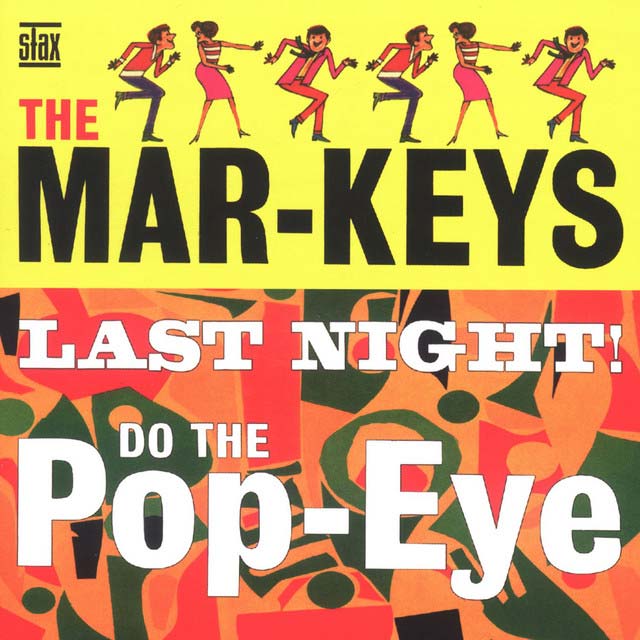
All was not lost, however, as Cropper took on a multi-tiered role in Stax’s studio, engineering, producing, songwriting, and working as the guitarist for Booker T. & The M.G.’s. During a short period, between the dissolution of the original Mar-Keys and the meteoric rise of newly minted M.G.’s, both groups commanded the sound of Stax’s studio, as The Mar-Keys offered something the M.G.’s did not: horns. With Cropper as the intrinsic link between both combos, there would even be instances of synergy between the groups, such as the Booker T. & The M.G.’s single “Boot-Leg,” which features contributions from Packy Axton.
However, after the release of a third LP, The Great Memphis Sound, on which hit single “Philly Dog” appeared, The Mar-Keys banner rounded out the decade as a pseudonym for the collective of Stax’s horn section with featured additional players, with the group’s core consisting of original member Wayne Jackson, alongside saxophonist Andrew Love and trombonist Joe Arnold.
In this iteration, The Mar-Keys name was responsible for a 1967 live album co-billed with Booker T. & The M.G.’s stemming from a performance at the L’Olympia Theatre in Paris, a surprise hit 1968 LP called Damifiknow! and a final album called Memphis Experience, in 1971.
by Jared Boyd
The Innovators: Stax Artist Spotlights ARCHIVE
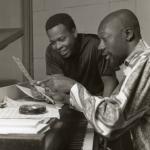
Stax Records — After 1975
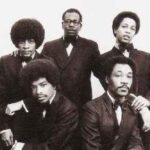
Ollie & The Nightingales
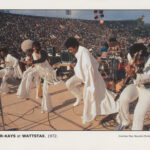
The Bar-Kays
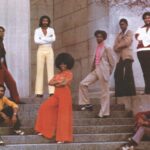
24-Carat Black

The Temprees
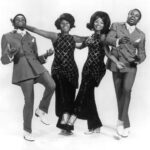
The Soul Children

The Mar-Keys

Delaney & Bonnie

Stax Groups – The Astors, Jeanne & The Darlings & the Charmels
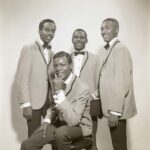
The Mad Lads
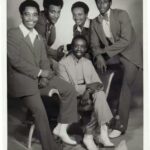
The Dramatics
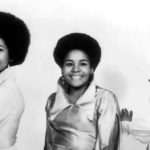
The Emotions

Johnnie Taylor
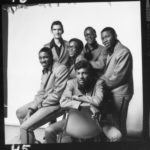
The Bar-Kays
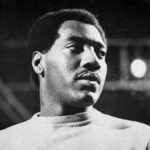
Otis Redding
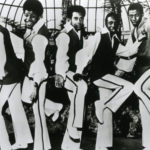
The Dramatics
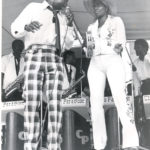
RUFUS & CARLA THOMAS
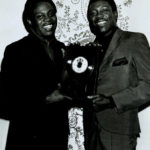
Sam & Dave
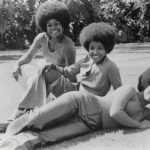
The Emotions
